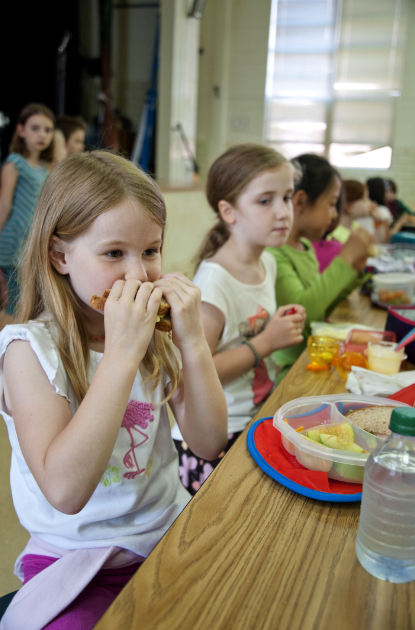They adopted him when he was 16. 8 years later, he's in prison — and they're waiting, as parents do.

When Cory was 5 years old, he was removed from his home by the state and placed into foster care. For the next 11 years, he bounced between homes, ultimately landing in a facility at age 15.
By then, the odds were beginning to dwindle that he would be adopted, as older children in the foster care system typically have a harder time finding their "forever family." Unfortunately, this part of Cory's story isn't all that rare.
Cory at almost 16, the first time he met the Crouch family. All photos courtesy of Tanja Crouch.
When it comes to U.S. foster care, many of the statistics are troubling.
Over 400,000 children were in foster care in 2013. And in the same year, 23,000 children “aged out" of the system.
That means they hit an age, usually 18, where they're simply “too old" to remain in foster care. They are turned out into the world on their own with no safety net — no family to come home to when life throws up an inevitable roadblock, nobody to call when their bank account balance dips below zero.
Teens who age out of the system face a more difficult road in life than average folks who have families. They are less likely to graduate from high school or get a GED, and they are far less likely to graduate from college. Additionally, they are more likely to become pregnant, homeless, or end up in jail.
Cory, however, didn't age out.
Cory was almost 16 when he met the people who would become his parents.
When I talked to Tanja and Kevin Crouch, they had recently celebrated their 36th anniversary. Tanja shared with me the memories of their life pre-Cory. Tanja, a recording studio manager, and Kevin, a college professor in the fashion department who has worked as a costumer designer for Disney, Vogue, and other companies, had assumed they would have biological children together. When they discovered they wouldn't be able to, they realized that parenting would have to look a little different than they envisioned.
But Tanja and her siblings were adopted, so she was no stranger to family ties in the absence of biology. The Crouches were open to adoption.
After learning about the need for foster and adoptive families for children in the U.S., Tanja and Kevin decided it was right for them. They attended months of training sessions and went through certification, and then the Crouches were ready to open their home.
Kevin, Tanja, and Cory Crouch.
In 2007, they opened it to Cory. “The first time we met Cory, I knew he was our son. I just felt it. … I felt a connection to him," Tanja told me. And the feeling was mutual. Although his caseworker presented him with the files of three families to review, after he met the Crouches, Cory said he didn't care to meet the others. He also felt the connection.
Following a few more meetings and a trial weekend, the three agreed that Cory should move in with Tanja and Kevin, one week before his 16th birthday and two short years before he would have aged out of the system.
That day, the Crouches became a family of three.
Kevin and Cory rappelling.
But for kids who have lived a large part of their childhoods in foster care, their troubles don't simply stop on a dime just because they've found a permanent home. Rough roads were still ahead.
Tanja and Kevin were committed to Cory from the beginning, like most parents.
And like all parents, they made some mistakes. “We probably spoiled Cory, giving him too much, too soon," Tanja said. “But we had waited so long for a child that we just wanted him to have every opportunity."
Cory later told them about his feelings, common among many foster children who find themselves in loving families after years of having the opposite. It was difficult for Cory “to suddenly have a family and people who cared if he did his homework and showed up for school and was where he was supposed to be," Tanja said.
“He never had anyone care or check up before. He also never had a cellphone or a computer or other things. The first week we had him, we took him shopping for new clothes and let him pick out his bedding and other things for his room. It became a little overwhelming to have choices and new things. This he shared with us more recently. He did not appreciate and take care of those things, probably because he was used to having to leave everything behind and just move with his clothes and a few other personal items."
The Crouches did what parents do when their kids have significant unmet needs: They find a way to meet them.
“Cory was nearly two years behind in school because no one had ever cared if he was in school and if he was passing classes," Tanja said. It was a lot for him to catch up on.
Additionally, they learned that Cory was heavily medicated for misdiagnosed ADHD. “There was a lot of counseling, tutors, and doctors' visits — things we never imagined."
At the same time, the couple also had to adjust to a big life change.
“Getting used to a third person who was an active teen ... lots of his friends coming and going — it was a big adjustment for us," Tanja explained. “We had been married for more than 20 years with no children, just the two of us. ... We were not prepared for all the adjustments. However, the sacrifices were worth it, to finally have a son."
Unfortunately, the impact of nearly 11 years in the foster care system, coupled with his other challenges, led Cory to make some poor decisions.
Cory ran into legal trouble when he was caught with pot, and his situation was further complicated when he failed to show for court dates. As a result, he's now serving time in prison.
His situation, it should be noted, is one that thousands of other teens — not just adopted teens — find themselves in every day, regardless of their backgrounds. Poor decision-making is often a rite of passage to adulthood. But unlike individuals who age out of the foster care system, Cory had a family before he turned 18 — and he has a family waiting for him when he's released. Tanja calls and writes to Cory weekly, sharing Scripture lessons and providing words of hope.
Cory has told Tanja many times that her letters are a source of encouragement. “I always start my letters by mentioning something we talked about on the phone and how proud I am of him. I end by telling him I love him," Tanja said.
She believes that has further solidified their relationship. “I know he never heard things like that when he grew up. My constantly reminding him he is my son and I am proud of the changes he is trying to make helps him to further believe in himself."
The Crouches are optimistic that Cory will be released this fall — and when he is, they'll be there for him. “I believe Cory is the son we were supposed to have. I believe that God found a way to finally help us to find one another," Tanja said.
Despite the challenges, Tanja and Kevin aren't going anywhere.
“This is not the plan I had for being a parent and certainly not the plan I had for Cory. But, I love him and I want this to be a blip on the radar." Her hope for him sounds like that of any parent who wants the best for their child. Their love is a great reminder that parenting comes in all shapes and sizes and families are created in many ways.
A mother's love knows no bounds.
Tanja shared a memory with me that sums up their journey so well:
“One time when Cory was kicked out of school for a week, he ran away. I went looking for him and finally found him with a group of 'troubled teen' friends. I told him to get in the car because we were going home. He was my son and I would always come and find him no matter what he did and where he went.
That is why, although he is sitting in prison, I have not given up on him. He is my son and I will always go and find him and bring him home because I love him. He is our son forever."
That is what a "forever family" looks like.



 Student smiling in a classroom, working on a laptop.
Student smiling in a classroom, working on a laptop. Students focused and ready to learn in the classroom.
Students focused and ready to learn in the classroom.
 A woman telling you to be quiet.via
A woman telling you to be quiet.via  A woman telling you to be quiet.via
A woman telling you to be quiet.via 
 Fish find shelter for spawning in the nooks and crannies of wood.
Fish find shelter for spawning in the nooks and crannies of wood.  Many of these streams are now unreachable by road, which is why helicopters are used.
Many of these streams are now unreachable by road, which is why helicopters are used. Tribal leaders gathered by the Little Naches River for a ceremony and prayer.
Tribal leaders gathered by the Little Naches River for a ceremony and prayer.
 A man standing up inside a plane
A man standing up inside a plane A hospice nurse with her female patient.
A hospice nurse with her female patient. 
 Can't quite imagine this on the average American school lunch tray.
Can't quite imagine this on the average American school lunch tray. A typical American school lunch.
A typical American school lunch. Kids eating lunch.
Kids eating lunch.